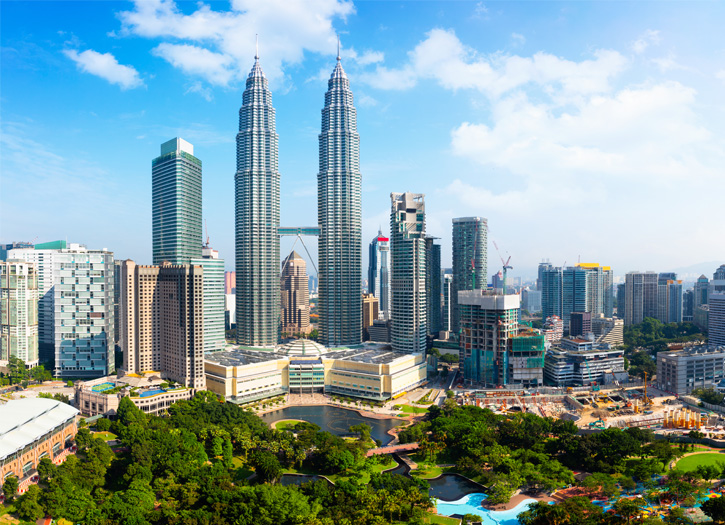The virus was confirmed to have reached Malaysia in late January 2020, when it was detected on travellers from China arriving in Johor via Singapore on 25 January, following the outbreak of COVID-19 in Hubei, China. Reported cases remained relatively low at first and were largely confined to imported cases, until localised clusters began to emerge in March.Within a few weeks, Malaysia had recorded the largest cumulative number of confirmed COVID-19 infections in Southeast Asia, breaching the 2,000 active cases mark by the end of March.
A gradual easing of restrictions was implemented in stages, first with the announcement of a “Conditional Movement Control Order” (CMCO) on 1 May, which allows most businesses to open on 4 May under strict standards of practice, followed by a “Recovery Movement Control Order” (RMCO) from 10 June. Originally slated to expire on 31 August, the RMCO has been further extended to 31 December 2020, with selected sectors remaining closed and strict travel restrictions from multiple countries remaining in effect due to continued detection of imported cases. Initially reporting the highest number of cases in Southeast Asia in March and early-April, daily active cases in Malaysia have declined steadily from a peak of 2,600 in early-April to a fluctuation of less than 250 cases since late-June.
In response to a surge of cases originating in South Korea, the Malaysian Government imposed a ban on visitors from South Korea on 26 February, including foreign nationals who had visited Daegu and Cheongdo. Malaysia experienced a spike in COVID-19 cases following a four-day Tablighi Jamaat event that was held at Kuala Lumpur’s “Masjid Jamek Sri Petaling” between 27 February and 1 March 2020. By 20 March, 48% of the country’s COVID-19 cases (3,347) had been linked to the Sri Petaling tabligh cluster. In response to the rise in cases nationally, Prime Minister Muhyiddin Yassin announced that Malaysia would enter into lockdown on 18 March 2020. On 1 August, there were 213 active cases with a total of 8,985 cases.
Beginning from 15 March, Malaysia saw a significant jump in active cases. The Prime Minister of Malaysia held a live nationwide telecast on 16 March 2020 at 10:00 pm (UTC+8) to announce the decision of the federal government in implementing the Movement Control Order (MCO). Based on the live addressing that evening, six restrictions have been imposed: The public is prohibited to mass gather or attend massive events including religious, sports, social and cultural activities. All worshiping locations and business premises should be closed except for supermarkets, public markets, grocery stores and convenience stores that sells everyday necessities. For Muslims, all religious activities in mosques including Friday prayers.
Tourists and foreign visitors are restricted to enter the country.Closure of all kindergartens, government and private schools, including daily schools, boarding schools, international schools, tahfiz centres and other primary, secondary and pre-university institutions. Closure of all public and private higher education institution (IPTs) and skill training institutes.Closure of all government and private premises except for essential services .On 7 September, the Immigration Department banned nationals from 23 countries with a high number of COVID-19 cases including the United States, Brazil, India, Russia, Peru, Colombia, South Africa, Mexico, Spain, Argentina, Chile, Iran, Bangladesh, the United Kingdom, Saudi Arabia, Pakistan, France, Turkey, Italy, Germany, Iraq, Philippines and Indonesia. The ban includes permanent residents, participants of the “Malaysia My Second Home” program, and expatriates and students.
On 27 March, Prime Minister Muhyiddin Yassin launched an economic stimulus package known as the “caring package” worth RM250 billion. Of these, RM128 billion was used to protect the welfare of the people and RM100 billion to support businesses, including small and medium enterprises (SMEs).The government also announced a RM600 million allocation on 23 March to the Ministry of Health for the purchase of equipment and to hire contract personnel, especially nurses. It has also announced that contributors of the Employees Provident Fund (EPF) can withdraw up to RM500 per month for 12 months.An allocation of RM130 million has also been announced and will be distributed equally to all states to help overcome the COVID-19 pandemic.







Add Comment
You must be logged in to post a comment.